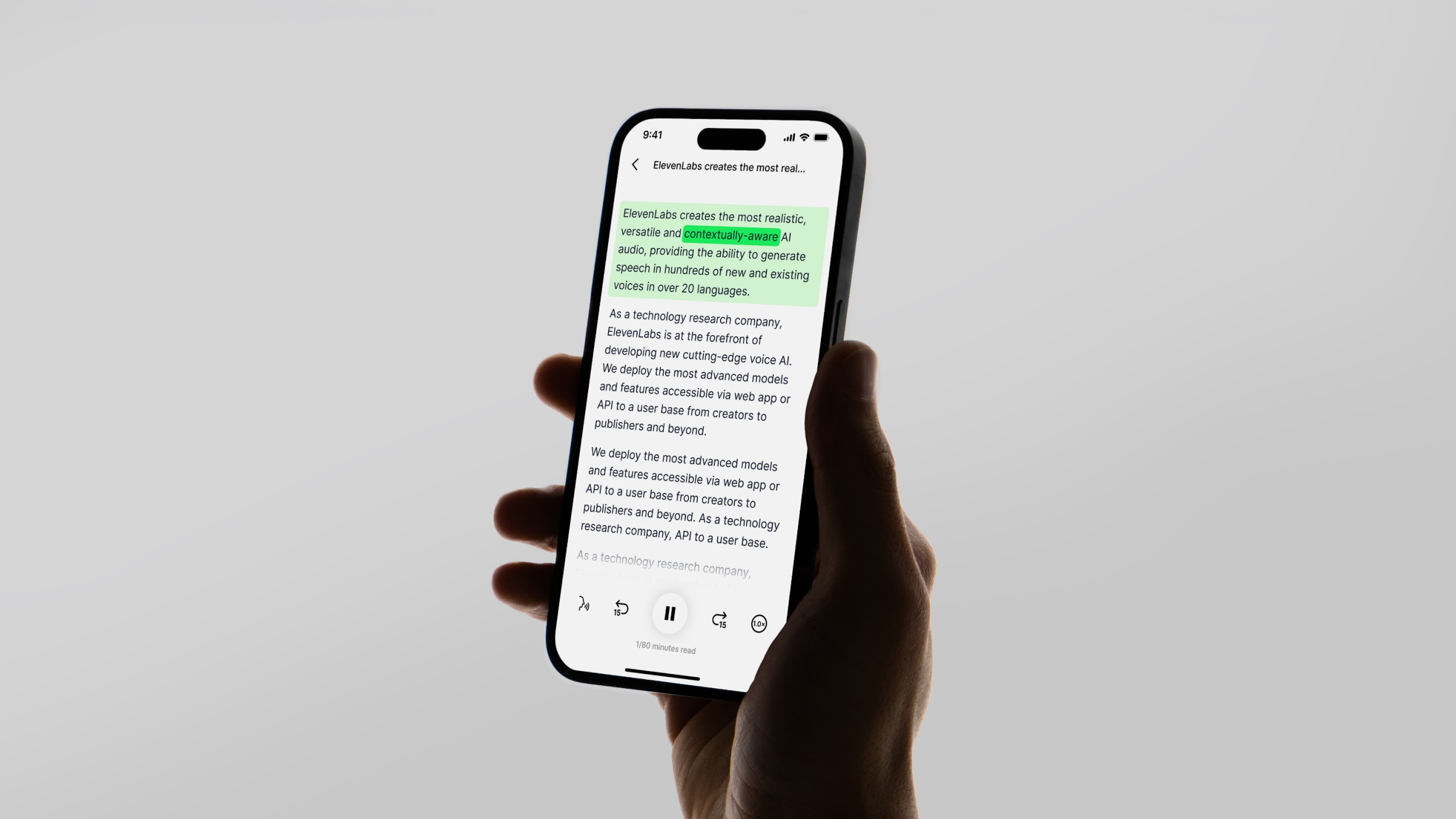
Bring any book, article, PDF, newsletter, or text to life with ultra realistic AI narration in one app
Whether you're multitasking, visually impaired, or just looking for a hands-free reading experience, a Text-to-Speech (speech reader) app provides a convenient solution.
This article lists the top 5 apps that read out text, converting it into audio files with natural-sounding voices.
Text-to-Speech apps use advanced AI algorithms to convert written text into spoken words. The Text-to-Speech tool analyzes the text, breaks it down into phonetic components, and then uses synthesized voices to produce speech.
This synthetic speech can then be fine-tuned, or even converted into a different language. Modern TTS apps feature natural-sounding voices, making the listening experience almost indistinguishable from a human reader.
These lifelike voices can be used for narrating romantic stories, tour guides, creating video games, YouTube videos, presentation voiceovers, or for converting an entire article for readers with a visual impairment, without the need for a voice actor.
If you're wondering "Is TTS easy to use?", then you'll be pleasantly surprised.
Here’s how ElevenLabs’ Text Reader converts text to an audio file in four simple steps.
P.S. Looking to convert text into multiple languages? ElevenLabs's Multilingual v2 Demo has you covered. Check it out below.
Step 1
Enter your text into the Text-to-Speech app.

Step 2
Select your voice from the dropdown menu, which features pre-made voices from the Voice Library. Alternatively, you can clone, customize, and fine-tune your own voices.

Step 3
Press the play button and listen to your content.
Looking for an app that can read out text?
Here's a brief rundown of the top 5 key players in the TTS app world, from simple web browser apps to innovative AI models.
Whether you need to read aloud content from Google Docs, paste text, or upload documents from cloud solutions like Google Drive, these apps have got you covered.

Speechify is a popular Text-to-Speech app known for its versatility and user-friendly interface.
Pros:
Cons:
Natural Reader offers an intuitive platform for converting text into audio, focusing on accessibility and ease of use.
Pros:
Cons:

ElevenLabs has recently released its own audio reader app, putting its advanced TTS model in your pocket. You can either download it as an app for iOS (i.e. for Apple devices) or access it online—whichever you prefer.
Pros:
Cons:
Voice Dream Reader is highly regarded for its accessibility features and extensive customization options.
Pros:
Cons:
TTSMaker is a straightforward, user-friendly app designed to quickly convert text into speech.
Pros:
Cons:
Text-to-Speech technology isn't just for reading out text. TTS apps can also be used for creating audiobooks, assisting language learners, generating voiceovers for videos, and aiding in accessibility for those with reading difficulties.
They can convert any written content into audio files, making information consumption more flexible and accessible. With continuous advancements in AI, the future of TTS promises even more realistic and engaging auditory experiences.
For example, ElevenLabs uses TTS for AI Dubbing—helping video game, audiobook, and social media content creators localize their content for a global reach.
Check out the short clip below to learn more about ElevenLabs's AI dubbing capabilities.
Apps like Speechify, Natural Reader, ElevenReader App, Voice Dream Reader, and TTSMaker are versatile tools for reading aloud different types of content.d
These Text-to-Speech apps are perfect for multitasking, helping with accessibility for visual impairments, and enabling a hands-free reading experience on mobile devices.
Beyond converting text to audio, TTS technology also aids in creating voiceovers for audio and video content, breaking language barriers, and providing voice actors with realistic AI-generated voices.
As TTS technology continues to advance, the future holds even more realistic speech output and expanded functionalities for Text-to-Speech software.
Ready to get started? Sign up for ElevenLabs today.

Bring any book, article, PDF, newsletter, or text to life with ultra realistic AI narration in one app

The most data-driven way to improve real-world agent performance.
.webp&w=3840&q=95)
UK AI Security Institute researchers will explore the implications of AI voice technology